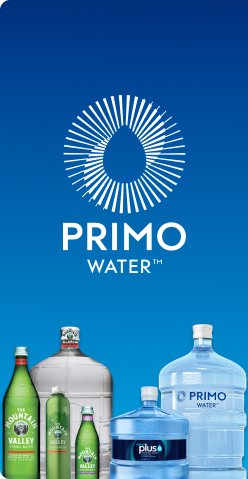Water Stewardship
We joined the Alliance for Water (AWS) in 2019 as part of our commitment to ensuring our water usage and conservation efforts meet internally recognized standards. Our water sources are carefully selected and closely monitored to ensure consistent quality and sustainable yield.
We are proud to announce that we have become the first company in the world to have a spring water source certified under the Alliance for Water Stewardship (AWS) program, a comprehensive global benchmark for responsible water stewardship. AWS certification demonstrates that Primo Water North America has addressed five aspects of responsible water stewardship: good water governance, sustainable water balance, good water quality, important water-related areas and safe water, sanitation and hygiene. Read our commitment statement to Water Stewardship here. SCS Global Services (SCS), a global leader in third-party certification of sustainability performance confirmed on December 8, 2020 the certification of our Diamond Spring site in Pennsylvania and on December 30, 2020 confirmed the Wekiva Springs site in Florida based on an independent, in-depth assessment. Read our announcements here.
Water stewardship efforts continued in 2021 with the certification of our Georgia Mountain Spring in Fannin County, GA. and our Mountain Valley Spring and bottling plant in Mountain Valley, AR. Read our announcements here.
Our certification and water stewardship initiatives in North America are managed by full-time hydrogeologists, responsible for effectively managing our spring water sources. Our goal is to have all of our owned spring water sources certified by the AWS by the end of 2022.
In addition, as a member of the International Bottled Water Association (IBWA), our U.S.-based bottling plants meet IBWA's strict Bottled Water Code of Practice and its standards of operation. This includes adhering to the organization's water reduction efficiency standards and careful selection of our water sources, as well as the alignment with the AWS standards.
